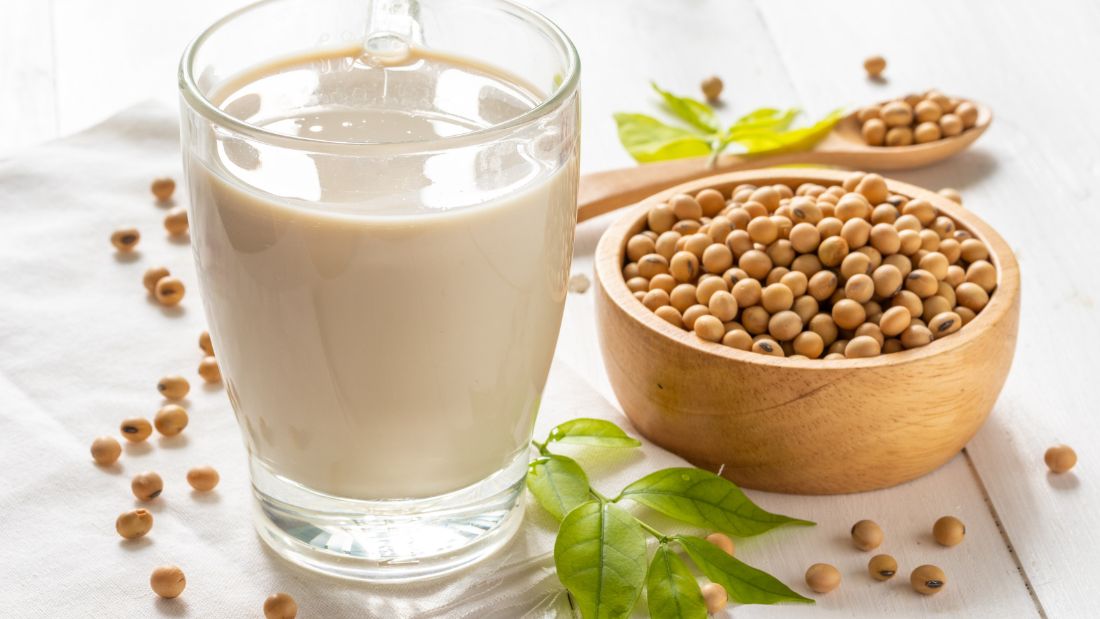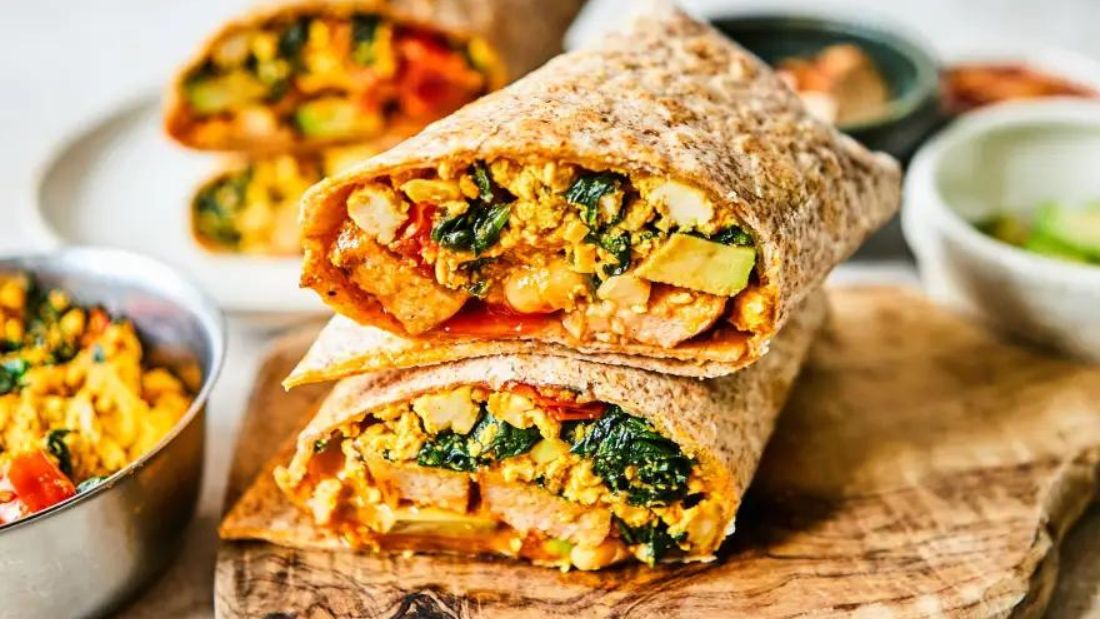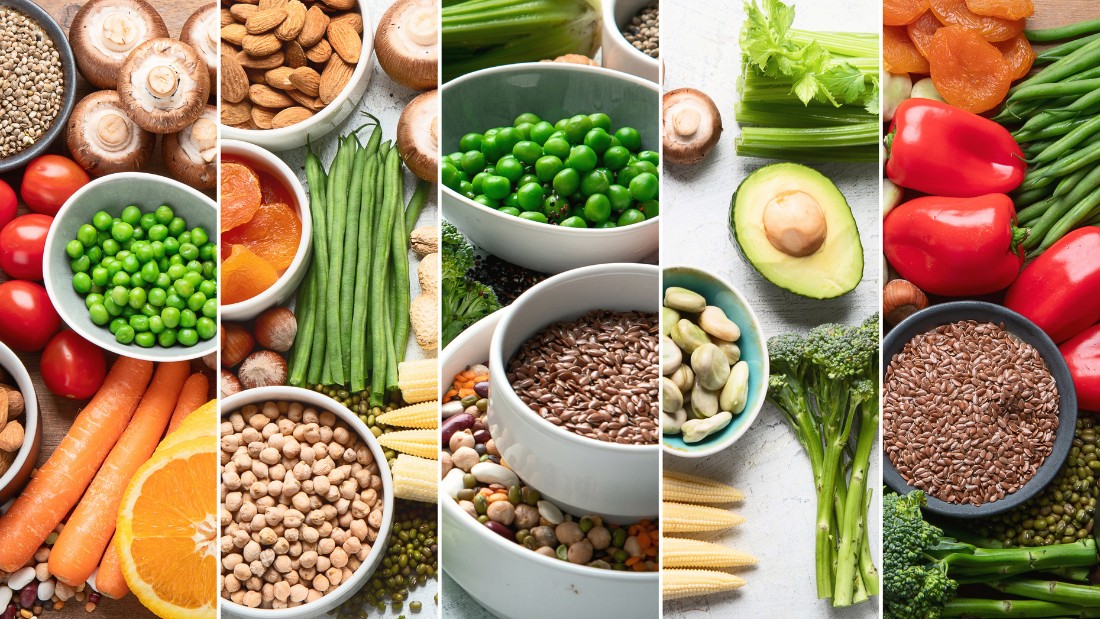Is Soya a Safe Source of Protein?

Few foods are as misrepresented and misunderstood as soya. The scare stories about the ‘dangers’ of this humble bean are not supported by any science but still, they persist.
Most of the concerns come from outdated animal studies but the truth is, soya is an extremely healthful food with many benefits, including being an excellent source of protein.
One hundred grams of fried tofu contains about 24 grams of protein and soya protein powder can be up to 91 per cent protein. Although all plants contain protein, not all contain all nine essential amino acids we need in high enough quantities, which is why we need to eat a varied diet.
However, soya contains enough of all the nine essential amino acids (protein building blocks) our body needs for healthy growth and repair.
To put your mind at ease about soya, here we address some common concerns to show you that soya is a safe source of protein for anyone and everyone!
Does soya have feminising effects?
Perhaps the most common soya myth is that it disrupts our hormonal systems and can cause ‘man boobs’. Some men worry that if they consume soya they’ll somehow become less masculine or won’t get the same gains in the gym.
However, there’s no evidence that soya has any negative effects on testosterone or oestrogen.
Most of the scare stories focus largely on soya isoflavones – plant hormones known as phytoestrogens. They can bind to oestrogen receptors in the body and cause either weak oestrogenic or anti-oestrogenic activity – slightly mimicking or inhibiting the effects of oestrogen.
This means that they may, in fact, have a ‘normalising’ effect – reducing a strong oestrogenic signal by blocking receptors or slightly boosting a weak one by binding to unoccupied receptors.
In other words, rather than disrupting oestrogen in men, they may help keep it in balance.
It’s wrong to think of testosterone and oestrogen as distinctly male and female hormones, respectively.
Oestrogen plays an important role in male sexual function and men should certainly not be worried about the phytoestrogens in soya.
Human studies show that soya isoflavones are safe and even beneficial to health; they exhibit antioxidant, anticancer, antimicrobial and anti-inflammatory properties. Rather than disrupting hormones, they may actually help regulate them.
People in parts of Asia have been consuming relatively high amounts of soya for hundreds of years, if it affected sexual development or fertility, that would have been noticed by now!
One thing to remember is that phytoestrogens are considerably weaker than the animal oestrogen found in human and cow’s milk, which never seems to attract the same scrutiny!
Beans for bones
Many don’t realise it, but the hormone oestrogen plays an important role in maintaining strong, healthy bones. That’s why postmenopausal women lose bone density and are more susceptible to osteoporosis as their oestrogen levels decrease.
Oestrogen is just as important to men’s bone health – men have an enzyme (aromatase) which converts testosterone to oestrogen.
As men age, they tend to produce less testosterone, albeit at a much slower and steadier rate than women’s loss of oestrogen, but this can still affect bone density.
This is where the phytoestrogen in soya comes in.
Studies show that the consumption of soya foods may decrease bone loss and help the formation of stronger bones.
One study compared soya protein and dairy milk protein and found that soya protein “may positively influence bone and calcium homeostasis.”
Another 2020 study found that “women who drink soy milk one or more times per day are 56 per cent less likely to develop osteoporosis than women who do not drink soy milk.”
Is soya a processed food and therefore unhealthy?
Firstly, soya comes in many forms: it can be eaten as the whole fresh or frozen bean (edamame) or in processed foods such as tofu and tempeh, and dairy alternatives.
But just because something is processed, doesn’t mean it’s unhealthy, which is why the term ultra-processed was introduced to describe highly manufactured junk foods.
Compared to other pulses, soya beans have a much lower carbohydrate content and are higher in protein and polyunsaturated ‘healthy’ fats, including both omega-3 and omega-6 fatty acids.
Soya contains all nine essential amino acids – the building blocks of protein – which we can’t make in our bodies and must obtain from food.
Soya is also a good source of disease-busting antioxidants, B vitamins, potassium, magnesium and iron.
Soya beans and other whole soya foods, such as tempeh, provide fibre which is important for bowel health and lowering cholesterol. Like all plant foods, soya contains no cholesterol.
Traditional soya foods, such as soya milk, tofu, tempeh, miso and soya sauce, are made using either precipitation or fermentation methods.
Many use the whole bean so are healthier than products made from processed soya protein alone such as TVP and other meat substitutes, which still provide a good, low-fat source of protein but are not as healthy as the whole bean.
Does soya cause breast cancer?
In the past, there were concerns that soya may increase the risk of breast cancer or make it worse in some cases. Extensive research over the last 30 years has found no such negative effects.
In fact, research shows eating soya during childhood and adolescence lowers the risk later in life and eating it after being diagnosed with breast cancer lowers the risk of recurrence and may improve treatment outcomes.
This may be due to isoflavones blocking the more potent oestrogens in the blood but more research is needed.
The Shanghai Women’s Health Study, the largest-ever study of soya and breast cancer, found that women who ate the most soya had a 59 per cent lower risk of premenopausal breast cancer compared with those who ate the least.
Soya foods can also help combat menopausal symptoms and may halve the number of hot flushes in women who eat soya compared to those who eat little or none.
Is soya nutritionally inferior to dairy?
Soya milk, and other dairy alternatives made from soya, is a healthier alternative to cow’s milk – as long as you drink fortified, low- or no-sugar varieties.
If you’re worried about calcium, fortified soya milk, yoghurt and calcium-set tofu provide significant amounts of this important mineral.
In fact, a 2018 study comparing plant-based milks to dairy milk found that the soya milks they tested actually had more calcium than cow’s milk.
Soya milk is also higher in unsaturated ‘healthy’ fats, fibre and protein, as well as a number of other vitamins and minerals.
Cow’s milk, on the other hand, was higher in cholesterol (soya milk has none), which can increase your risk of heart disease.
Dairy has also been linked to many other diseases including prostate cancer. Ditching the dairy in favour of soya milk could be a life saver.
As you can see, not only are the myths about soya false, but soya is a super healthy source of protein. It’s also very versatile.
Take tofu, for example, you can marinate and fry it, scramble it on toast, use it to make chocolate mousses, or just throw a block of plain tofu in a smoothie!
Whichever way you decide to eat it, you can rest assured soya is a safe and perfect plant protein.






